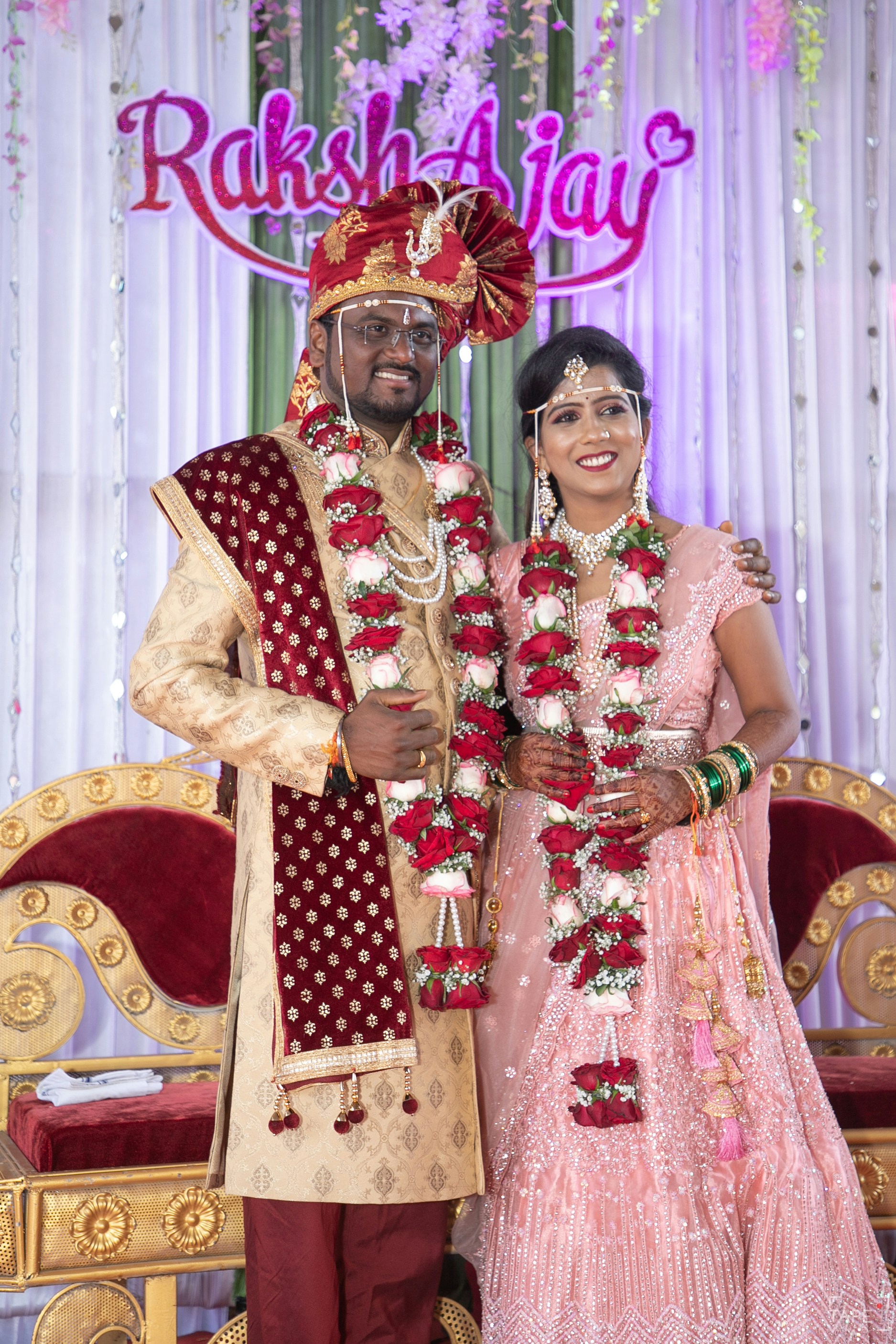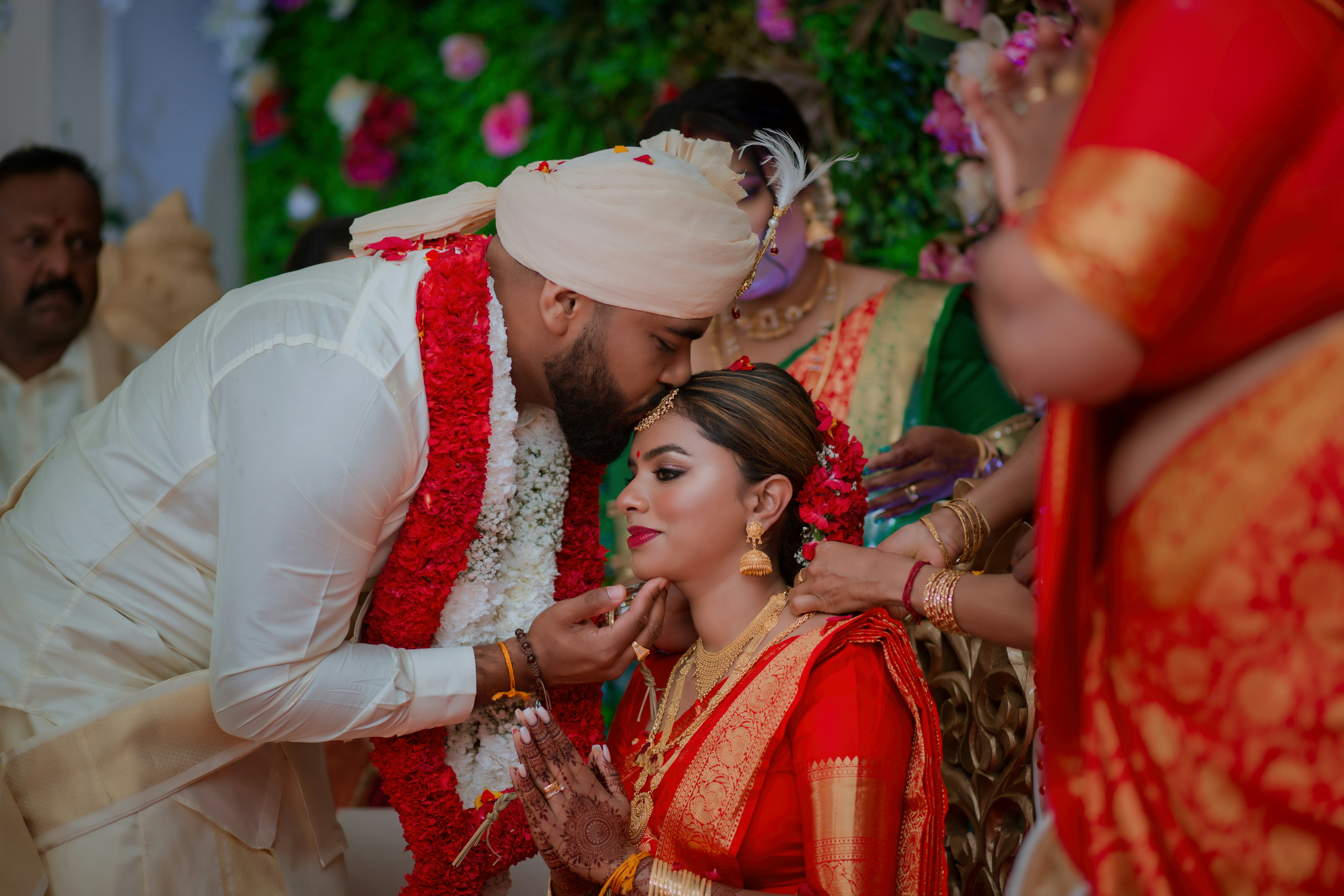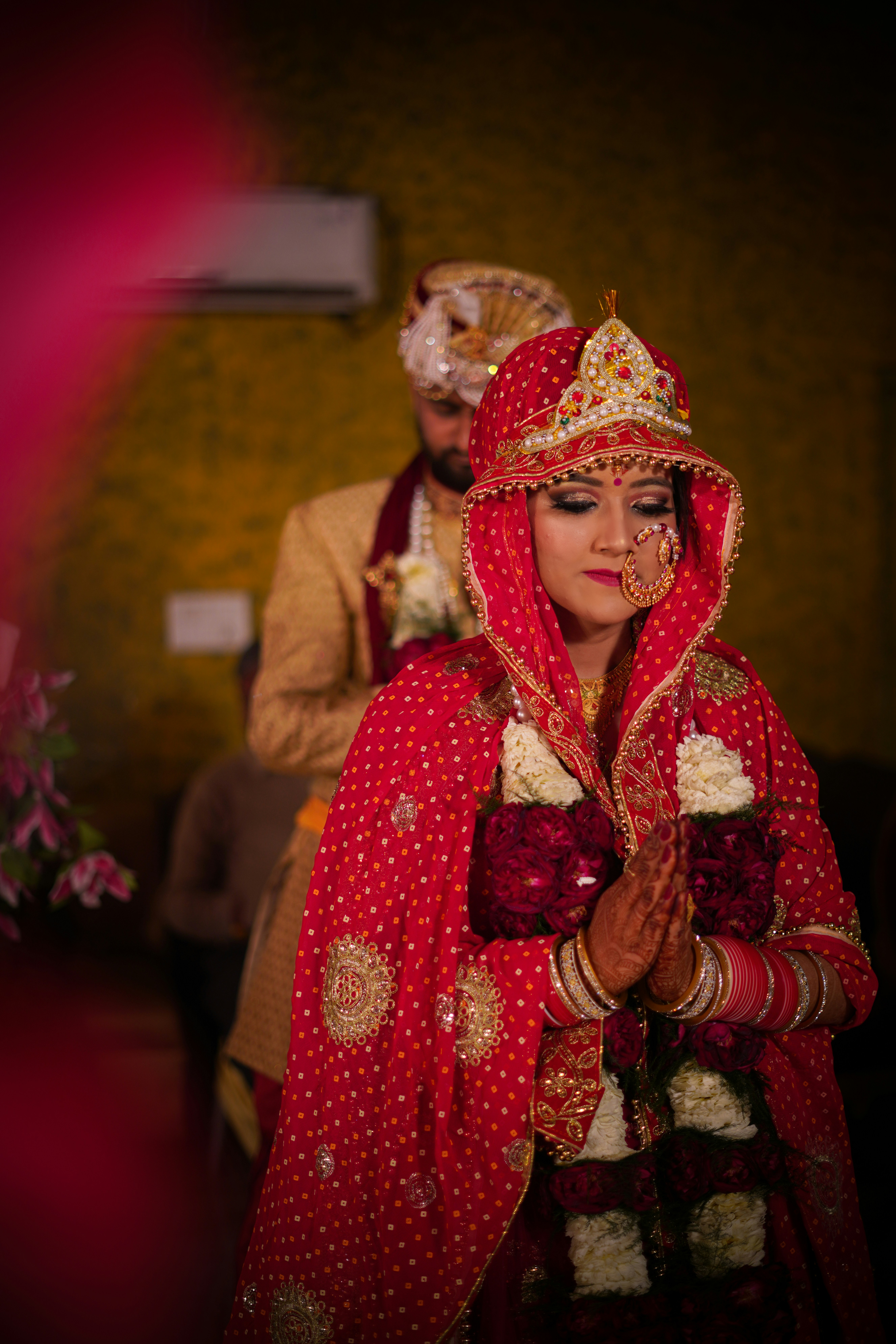Introduction to Wedding Dates
Choosing the right date for a wedding is a significant decision that extends beyond mere logistics; it is imbued with cultural beliefs, astrological considerations, and emotional resonance. Many couples encounter the notion that particular days may be perceived as more auspicious than others, which can affect not only the ceremony but also the overall journey of the marriage itself. Traditionally, numerous cultures have attached symbolic meanings to specific days, intertwining personal choice with heritage and family expectations.
Astrology also plays a pivotal role in wedding date selection. Many couples consult astrological calendars to identify days that align favorably with their zodiac signs, believing that certain days will foster harmony and prosperity in their union. This practice, while rooted in ancient traditions, speaks to a broader desire among couples to ensure their partnership flourishes under favorable celestial conditions. In some cultures, numerology additionally influences the decision-making process, as specific numbers are considered lucky, further guiding couples in selecting an ideal day for their marriage.
Furthermore, the significance of the chosen date can set a tone for the couple’s new life together. Dates that hold personal meaning, such as anniversaries of when the couple first met or memorable shared experiences, can enhance the emotional weight of the occasion. This personal connection often informs other decisions regarding wedding planning, from venue selection to theme and decoration.
Ultimately, the process of selecting a wedding date encapsulates both practical and sentimental considerations, reinforcing the idea that the chosen day can influence not only the wedding celebration but the couple’s future together. As couples embark on choosing their special day, understanding the deeper implications of their choice can enrich their wedding experience.
Understanding Auspicious Dates
Auspicious dates hold significant cultural and religious importance in the context of marriage. They are seen as times that align with favorable cosmic energies, which are believed to bring blessings and prosperity to the union. Different cultures and religions attribute various meanings and interpretations to these dates, influencing how couples select their wedding days.
In Hindu culture, for instance, the concept of ‘muhurta’ is central. A muhurta is a specific time that is considered conducive to commencing important events, including marriages. Astrologers are often consulted to identify the ideal muhurta based on the couple’s birth charts. Similarly, in Chinese tradition, certain dates are deemed more favorable based on the lunar calendar, with specific numbers such as 8 being particularly auspicious due to their association with wealth and prosperity.
In Islamic traditions, while there is no strict requirement to select an auspicious date, many families consult religious scholars to choose a date that aligns with significant Islamic events or to ensure that the day is blessed through prayer and community gatherings. This practice emphasizes the idea of starting a marriage on a day that is favorable in the eyes of their faith.
In Western cultures, the consideration of auspicious dates may not hold the same weight, but seasonal elements, such as spring weddings symbolizing renewal and love, can influence decisions. The time of year, day of the week, and even celestial events like a full moon can be used as guiding factors.
By embracing these traditions, couples can navigate their wedding date selection process with a sense of purpose and cultural significance, thus setting the tone for a blessed and harmonious marriage.
Popular Wedding Seasons of 2025
Choosing the right season for a wedding is crucial, as it can significantly influence various aspects of the event, from venue availability to overall ambiance. In 2025, couples will have the opportunity to consider four primary wedding seasons: spring, summer, fall, and winter, each offering unique advantages and appeal.
Spring weddings, typically spanning from March to June, are renowned for their blooming flowers and mild weather. This season symbolizes renewal and growth, creating a picturesque backdrop for nuptials. Couples opting for a spring wedding can take advantage of vibrant floral arrangements and outdoor venues, enhancing the romantic atmosphere. Additionally, venues might be more accessible in early spring compared to the peak summer season, allowing for a broader selection of locations.
Summer, running from June to September, is the most popular wedding season and is characterized by warm temperatures and extended daylight. This period offers couples a plethora of options for outdoor celebrations, beach weddings, or festival-themed events. However, it is essential to consider potential heat waves and humidity, particularly in certain regions. Proper planning to ensure guest comfort with shaded areas and air-conditioned spaces will enhance the experience for all attendees.
As the leaves begin to change, fall weddings from September to November bring a sense of warmth and coziness. The rich, earthy colors of fall foliage provide a stunning backdrop for ceremonies and receptions. Fall also tends to offer more moderate temperatures, making outdoor events a popular choice. Additionally, couples may find that venues may be more competitively priced in the off-peak season compared to summer, allowing for potential budget flexibility.
Finally, winter weddings, taking place from December to February, create a magical wonderland, particularly in regions that experience snowfall. This season evokes feelings of warmth and intimacy, making it ideal for cozy indoor celebrations. The availability of festive decor, such as twinkling lights and seasonal florals, allows for a unique and enchanting wedding atmosphere. However, couples should be prepared for weather challenges, ensuring that guests can comfortably travel to and from the venue.
Ultimately, the choice of wedding season in 2025 should align with the couple’s vision, preferences, and logistical considerations, ensuring a memorable and beautiful celebration. Each season offers distinct opportunities that can translate to a happy and prosperous wedding day.
Top Wedding Dates in 2025
Choosing the right date for a wedding can significantly influence the joy and prosperity of the union. In 2025, several dates stand out due to their positive numerological and astrological implications, as well as their cultural significance. Couples looking to finalize their ceremony date will find these options particularly appealing.
One of the most recommended wedding dates is February 14, 2025, which falls on Valentine’s Day. This date is associated with love and romance, making it a fitting choice for couples seeking a deeply symbolic day to exchange vows. The added cultural significance of this date enhances its charm, often leading to a more memorable celebration.
Another auspicious date is May 5, 2025, recognized for its strong numerological value, praying upon the repetition of the number five. The number five is often connected with adventure and change, making this date favorable for couples excited about their new journey together. The alignment of the numbers also suggests a harmonious blending in the relationship.
Moving to the fall, September 9, 2025, emerges as a powerful choice. Known as a day that emphasizes partnerships and balance, it reflects the duality of the number two when considered in numerology. This date fosters a sense of unity between partners and enhances the potential for mutual understanding and respect in a marriage.
Aiming for a different seasonal vibe, December 12, 2025, is also regarded as an ideal date. The repetition of the number twelve suggests completeness and fulfillment, which speaks volumes in the context of matrimony. This date not only embodies the spirit of the holiday season but also invites a sense of joy and celebration among family and friends.
Ultimately, the significance of these dates lies in the hope and intention behind them. As couples plan their weddings for 2025, these selected dates not only promise happiness but also symbolize the enduring essence of their love story.
How to Choose Your Wedding Date
Choosing the perfect wedding date is a significant step in your wedding planning process. It is essential to consider various factors to ensure that your chosen date aligns with the needs of both families and guests, as well as personal preferences. One of the first aspects to take into account is the availability of your loved ones. If you have important family members or friends who play a vital role in your wedding, ensure they are free on your selected date. This can foster a sense of togetherness and support during your celebration.
Another key consideration is the availability of your desired wedding venue. Popular venues tend to book up quickly, especially during peak wedding seasons. By reaching out to potential venues early in your planning, you can better determine available dates that work for your vision while ensuring your ideal location is secured. If your heart is set on a specific venue, flexibility with your date may also play a crucial role. Consider weekdays or off-peak seasons, which can offer more choices and may help you save on costs.
Personal milestones, such as anniversaries or holidays, can also provide a meaningful backdrop to your wedding date. Choosing a date with personal significance can add emotional value to your celebration and resonate well with guests. However, balancing these personal preferences with practical considerations is vital in crafting your perfect day. Communicate openly with your partner and relevant family members to discuss any potential conflicts, preferences, or hidden factors that may influence your decision.
By weighing family availability, venue schedule, and personal milestones thoughtfully, you can select a wedding date that works harmoniously for everyone involved, leading to a joyful wedding experience.
Astrological Considerations for 2025 Weddings
When selecting the perfect wedding date, astrology can play a significant role for couples who believe in the influence of celestial bodies on their lives. In 2025, various astrological configurations will be present that might enhance the auspiciousness of wedding ceremonies and subsequently the marital journey. Understanding the significance of zodiac signs and planetary alignments can help couples choose a date that aligns with their hopes for a prosperous and harmonious union.
Each zodiac sign possesses unique characteristics that can influence the personalities and compatibilities of individuals. Therefore, couples should consider their own zodiac signs as well as those of their prospective spouses when planning their wedding. Certain periods of the year will emphasize beneficial energies for particular signs, creating a supportive environment conducive to love and collaboration. For instance, earth signs such as Taurus, Virgo, and Capricorn thrive during spring and late summer, which may be ideal for couples who resonate with these elements.
Furthermore, the alignment of planets is crucial when determining favorable dates. For instance, Venus, known as the planet of love, plays a vital role in fostering romantic relationships. Wedding dates that coincide with Venus in a strong position are often considered promising, as they can enhance love, mutual respect, and overall marital joy. Events like new moons and full moons also hold significance, as these celestial happenings can symbolize fresh beginnings or culminating moments, respectively, which may directly impact marital dynamics.
By taking astrological factors into account, couples can thoughtfully plan their wedding in 2025, ensuring their chosen date resonates with their shared values. This mindful approach enhances their collective journey, guiding them towards a more harmonious and prosperous married life.
Special Events and Holidays to Consider
When planning a wedding, couples need to consider not only their personal preferences but also the significance of national holidays and local events in the year 2025. Incorporating these special dates into wedding planning can enhance the overall experience, making the celebration more unique and memorable. In many cases, these events coincide with favorable sentiments, providing an ideal backdrop for a joyous occasion.
National holidays such as Valentine’s Day, Independence Day, and Thanksgiving offer excellent opportunities to plan a wedding. Valentine’s Day, celebrated on February 14, symbolizes love and unity, rendering it a popular choice for couples wanting a romantic date. In contrast, Independence Day on July 4 is characterized by fireworks, barbecues, and festive gatherings, which can create a dazzling atmosphere for a summer wedding. By choosing such dates, couples can easily integrate these celebrations into their wedding, either through themed decorations or incorporating friends and family into the festivities.
Moreover, local festivals and significant events can add an exciting dimension to a couple’s wedding. Many towns host annual fairs, cultural celebrations, or parades that reflect the unique spirit of the community. Aligning a wedding date with these local happenings not only promotes community engagement but also aligns the personal celebration with the collective joy of the town. However, couples should be mindful of potential scheduling conflicts, as event attendance may reduce the availability of accommodations or venues.
Furthermore, understanding these events in advance provides couples the advantage of planning ahead, ensuring that their preferred venue is available and that their guest lists can attend without hindrance. Ultimately, leveraging significant holidays and local gatherings can create a festive and cheerful atmosphere that enhances the overall wedding experience.
Avoiding Unfortunate Dates
When planning a wedding, selecting the right date is paramount to ensuring a memorable and joyful occasion. Many couples take into consideration specific dates that are deemed inauspicious, often influenced by cultural beliefs, personal anecdotes, and superstitions. Recognizing these potentially unlucky dates can assist couples in making informed decisions that could influence the overall success and happiness of their marriage.
One prominent example of an inauspicious date is Friday the 13th, which is often associated with bad luck in Western cultures. Many people believe that getting married on this day could invite misfortune into the union. Similarly, certain lunar calendars highlight specific days that are traditionally avoided for weddings. For instance, the Chinese culture often observes specific months or days deemed “heavenly cancelled” which is thought to bring bad luck to significant life events, including marriages. Couples from various backgrounds should be cognizant of such cultural perceptions, as they can significantly impact the wedding experience.
Additionally, personal anecdotes play a crucial role in shaping beliefs about unlucky wedding dates. For some, a date that coincides with a historical event marked by tragedy may evoke feelings of unease. For example, anniversaries of well-known national disasters or other negative events might prompt couples to steer clear of those dates, associating them with sadness rather than joy. This is especially true when families have experienced loss, which makes it even more vital to ensure that the chosen wedding date resonates positively with both families.
Ultimately, while the choice of a wedding date is deeply personal, being aware of unfortunate dates can empower couples to deliberate strategically, contributing to a happier and more prosperous marriage right from the outset. Thus, taking time to research and discuss these considerations will aid couples in their quest for marital bliss.
Conclusion: Making the Final Decision
Choosing the right date for your wedding is a critical aspect that can influence many elements of your special day. Throughout this blog post, we have discussed various factors that couples should consider when selecting a marriage date in 2025. These factors include significant cultural and religious observances, seasonal variations, and even astrological considerations. Each of these elements plays a pivotal role in shaping the overall ambience of your wedding and ensuring that it reflects your values and aspirations.
When proceeding to make the final decision about your wedding date, it is essential for couples to weigh both personal beliefs and practicalities. For instance, while certain dates may hold emotional significance, such as anniversaries or important milestones, you should also consider logistical factors such as venue availability, vendor schedules, and weather patterns. Additionally, some couples may prefer to avoid specific months or days believed to be unlucky according to cultural traditions. Being cognizant of these elements can prevent potential conflicts and ensure a smooth planning process.
Ultimately, the ideal wedding day should resonate with both partners, integrating emotional significance with practical arrangements. The synergy between personal sentiments and pragmatic considerations helps create a day that feels authentic and meaningful. By assessing all these aspects carefully, couples can find a date that not only marks the beginning of their married life but also embodies a joyful and prosperous celebration. As you plan your wedding in 2025, embrace the opportunity to craft a date that is uniquely yours, setting the stage for a fulfilling journey together.




